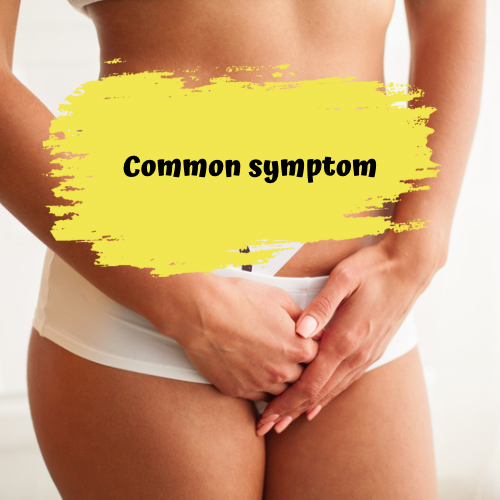Urinary Tract Infections (UTIs) and yeast infections are common health concerns, particularly among women. Both conditions can cause significant discomfort and, if left untreated, may lead to serious complications. This article will provide an in-depth analysis of whether UTIs and yeast infections can resolve on their own and the potential risks of leaving these infections untreated.
Additionally, we will explore the various treatment options and preventative measures available.
Yeast Infections
Overview and Causes
Yeast infections, also known as vulvovaginal candidiasis, are caused by an overgrowth of the fungus Candida albicans. This fungus is naturally present in small amounts in the body but can multiply and cause an infection when certain conditions are met.
Can Yeast Infections Go Away on Their Own?
In some cases, mild yeast infections may resolve on their own without medical intervention. However, most yeast infections will worsen without treatment, leading to more severe symptoms and complications.
It is generally recommended to seek treatment for a yeast infection to avoid further discomfort and potential complications.
Symptoms of Yeast Infections
Common symptoms of yeast infections include:
· Vulvar itching and soreness
· Pain, redness, and swelling in the affected area
· Irritation and abnormal discharge
· Painful intercourse
· Pain or burning sensation while urinating
· Watery discharge
Risk Factors for Yeast Infections
Multiple factors can increase the risk of developing a yeast infection:
· Antibiotic use
· Diabetes
· Excessive sweating
· Age
· Smoking
· Alcohol consumption
· Hormone shifts (e.g., hormonal birth control, pregnancy)
· Obesity
· Poor hygiene
· Genetic predisposition
Treatment Options for Yeast Infections
Over-the-counter (OTC) and prescription treatments are available for yeast infections. These include:
· Topical antifungal ointments and creams (e.g., Monistat-1, Miconazole, Clotrimazole, Imidazole)
· Oral antifungal medications (e.g., Fluconazole, also known as Diflucan)
· Prescription hydrocortisone steroid cream to reduce inflammation and itching
Urinary Tract Infections (UTIs)
Overview and Causes
UTIs are infections that affect the urinary system, including the kidneys, bladder, ureters, and urethra. Most UTIs are caused by bacteria, with E. coli being the most common culprit.
Can UTIs Go Away on Their Own?
Uncomplicated UTIs may resolve without antibiotics in some cases. However, complicated UTIs and those caused by other underlying conditions require medical treatment. It is essential to seek medical attention before attempting self-treatment for a UTI, as untreated UTIs can lead to serious complications, such as kidney infections and sepsis.
Symptoms of UTIs
Common symptoms of UTIs include:
· A strong, persistent urge to urinate
· A burning sensation when urinating
· Passing small amounts of urine frequently
· Cloudy, dark, bloody, or strong-smelling urine
· Pain/pressure in the lower abdomen or back
· Feeling tired or shaky
· Fever or chills (a sign that the infection has reached the kidneys)
Risk Factors for UTIs
· Being female (women have a shorter urethra, making it easier for bacteria to enter the bladder)
· Sexual activity
· Use of certain types of birth control (e.g., diaphragms, spermicides)
· Menopause (decreased estrogen levels can make the urinary tract more susceptible to infection)
· Urinary tract abnormalities or blockages
· Weakened immune system
· Use of urinary catheters
· Prolonged immobility (e.g., bed rest, hospitalization)
Treatment Options for UTIs
Antibiotics are the standard treatment for UTIs, as they target the bacteria responsible for the infection. However, antibiotics can also cause side effects, including:
· Allergic reactions
· Nausea
· Vomiting
· Diarrhea
· Rash
· Yeast infections
To prevent bacteria from becoming resistant to antibiotics, it is essential to take them only when absolutely necessary and as directed by your healthcare provider. If overused or misused, the efficacy of future treatments may be compromised.
Home Remedies and Preventative Measures for UTIs
While medical treatment is often necessary for UTIs, there are some home remedies and preventative measures that can help alleviate symptoms and reduce the risk of future infections. Here are a few remedies for how to treat a UTI at home
· Hydration: Hydrate with plenty of water to effectively flush out bacteria from your urinary system.
· Frequent urination: Emptying the bladder regularly can help prevent bacterial buildup.
· Cranberry juice: Various studies allude to the possibility that consuming cranberry juice may aid in preventing UTIs, yet the evidence is ambiguous.
· Probiotics: Beneficial bacteria found in probiotics can help maintain a healthy balance of bacteria in the urinary tract.
· Vitamin C: Increasing vitamin C intake can make the urine more acidic, creating an inhospitable environment for bacteria.
· Proper wiping: Wiping from front to back after using the toilet can help prevent bacteria from entering the urethra.
· Good sexual hygiene: Urinating before and after sexual activity, cleaning the genital area, and using barrier protection can help reduce the risk of UTIs.
Conclusion
While mild yeast infections and uncomplicated UTIs may sometimes resolve on their own, it is generally advised to seek medical treatment to avoid further discomfort and potential complications. Both conditions can lead to severe complications if left untreated, so it is crucial to recognize the symptoms and take appropriate action.
There are various treatment options available for both yeast infections and UTIs, including over-the-counter medications and prescription treatments. In addition to medical treatment, implementing preventative measures and home remedies can help alleviate symptoms and reduce the risk of future infections.
In conclusion, although UTIs and yeast infections may occasionally resolve on their own, it is essential to seek medical advice and treatment to ensure a swift recovery and avoid complications. Practicing good hygiene, being aware of risk factors, and following the prescribed course of treatment can significantly improve overall health and well-being.


